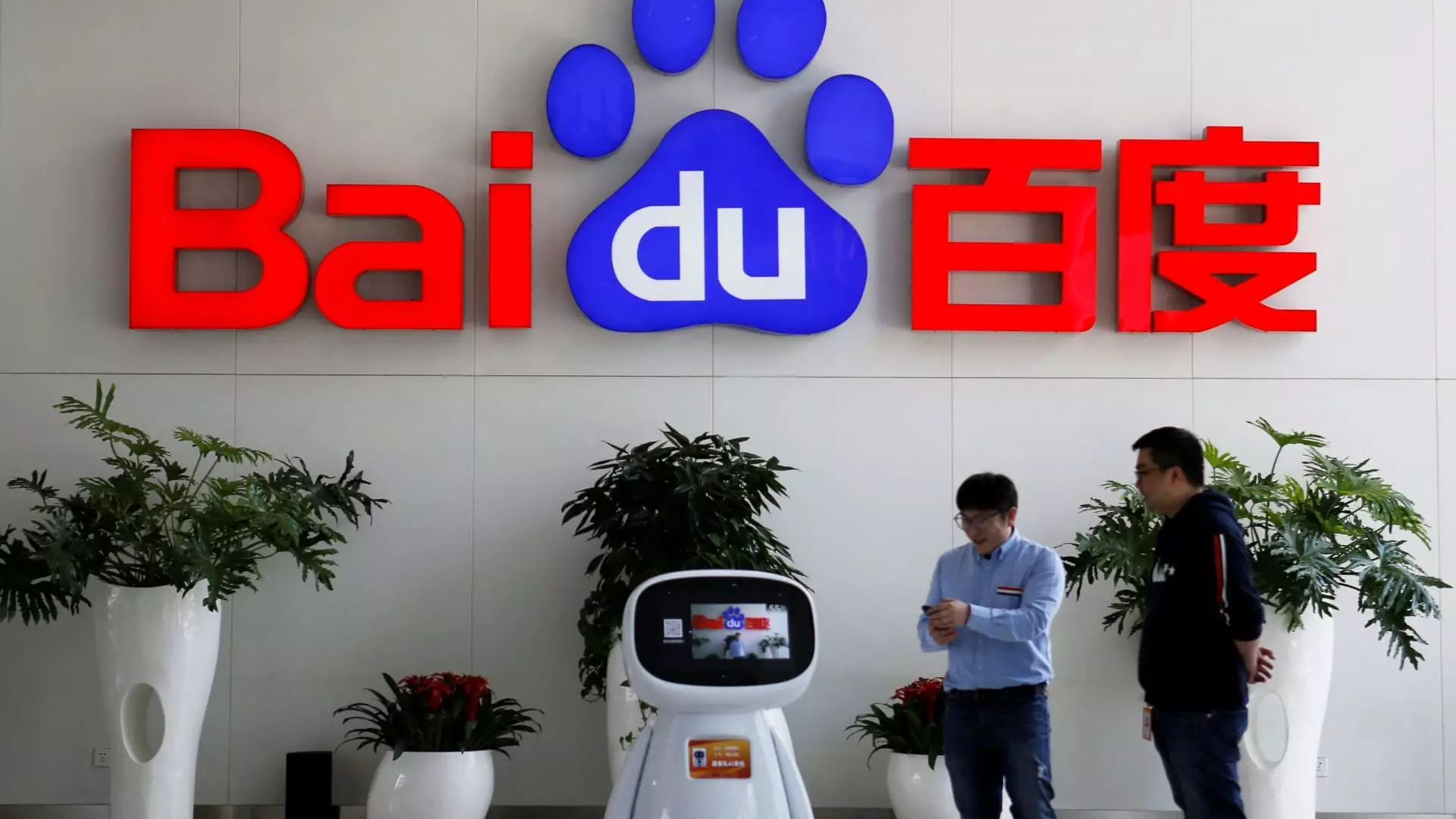In the dynamic landscape of artificial intelligence (AI), Chinese tech giant Baidu is gearing up to unveil its next-generation AI model, Ernie 5.0, in the latter half of this year. This strategic development occurs against a backdrop of increasing competition in the field, particularly from burgeoning startups like DeepSeek. These emerging players are shaking up the market with their innovative offerings, challenging established behemoths such as Baidu and OpenAI. The anticipated release of Ernie 5.0 highlights Baidu’s commitment to maintaining its leadership and enhancing its capabilities in AI.
Multimodality: The Future of AI Processing
One of the groundbreaking features of Ernie 5.0 is its “multimodal capabilities.” However, as intriguing as this development sounds, the specific functions it will encompass remain cloaked in uncertainty. Multimodal AI represents a significant evolution, enabling machines to interpret, analyze, and generate data in various forms, including text, video, audio, and images. This capability allows seamless transitions between different data types—for example, transforming text into video or vice-versa. With its cutting-edge foundation model, Ernie 5.0 aims to set new benchmarks in how AI understands and interacts in natural language while simultaneously expanding its functional applications.
The race to innovate within China’s AI sector is intensifying as local companies strive to carve out their niches in the sprawling global market. The pioneering spirit isn’t limited to Baidu alone—newly minted startups like DeepSeek are making headlines for their competitive pricing and robust functional capabilities. For instance, DeepSeek’s introduction of an open-source AI model sent ripples through the tech industry, leading to significant shifts in global stock valuations. This disruption emphasizes the urgency with which Baidu and its peers must innovate to keep pace with these new challengers.
Baidu’s CEO, Robin Li, recently addressed these trends at the World Governments Summit in Dubai, predicting that the inference costs associated with foundation models could drop dramatically within a year. If realized, such a reduction would translate directly to increased productivity and efficiency across industries, establishing a compelling case for the integration of AI into everyday business practices. This potential for cost reduction is integral to the very ethos of innovation that drives the AI revolution.
Despite being one of the first movers in the Chinese market with the launch of its ChatGPT-like chatbot, Ernie, Baidu is facing mounting competition from various fronts. Since its debut in March 2023, Ernie’s initial success has dwindled in the face of newer, robust offerings from both startups and major industry players such as Alibaba and ByteDance. The contrasting stock trajectories—Baidu’s modest gains against Alibaba’s impressive growth of over 33% year-to-date—underscore the pressing need for Baidu to differentiate its offerings further and regain market traction.
Honed for integration, Ernie has demonstrated versatility by marrying generative AI with Baidu’s wide-ranging services, from cloud solutions to content creation tools. This synergy is evident in platforms like Wenku, a document and presentation tool that saw significant user growth, indicative of the demand for AI-enhanced productivity solutions. However, as competitors improve their technologies, the stakes in this sector are undeniably high.
Looking Ahead: The Road to Ernie 5.0
With the current iteration of Ernie at Generation 4 released just months ago, the anticipation surrounding Ernie 5.0’s launch is palpable. Incremental enhancements like the turbo version, Ernie 4.0, introduced in August 2024, provide insights into Baidu’s trajectory, although a formal announcement regarding Ernie 5.0 remains absent.
In contrast, global competitors such as OpenAI consistently release updated versions of their flagship models, keeping audiences engaged and expectations high. The absence of a definitive timeline for OpenAI’s next model, GPT-5, suggests that the competition is not only in technological advancement but also in communication strategies about future developments.
As Baidu navigates this competitive landscape, the successful release of Ernie 5.0 could redefine its position in the global AI race, spotlighting its innovative capabilities and reaffirming its commitment to advancing technology that is both transformative and functional. The race is on, and the implications for Baidu’s future in AI are profound as they strive to meet and ultimately exceed consumer expectations.


Leave a Reply
You must be logged in to post a comment.